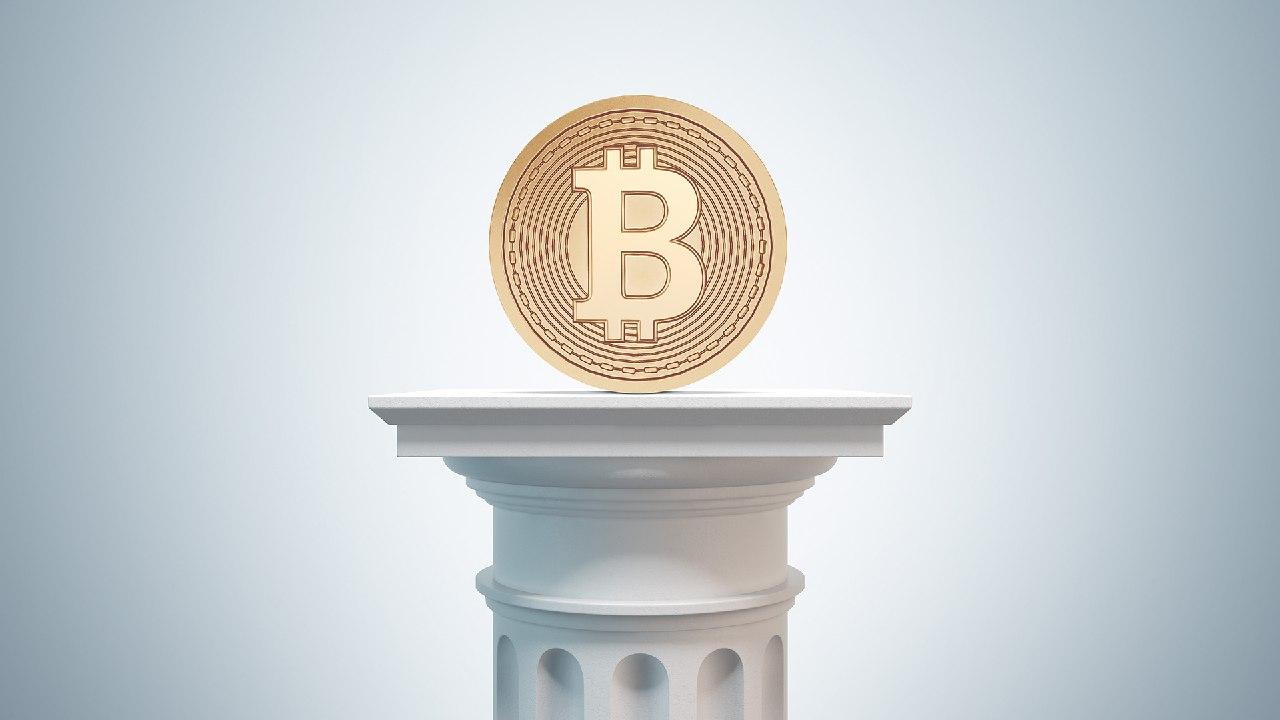Formerly known as Libra, Diem is a permissioned blockchain-based payment system proposed by one of the most famous companies in the world – Facebook, Inc. The planned cryptocurrency to support this system, along with the experimental network was all set to be released in 2020. However, as of April 2021, we are yet to see anything concrete, apart from a rudimentary experimental code.
As was expected, when Facebook pronounced Diem (erstwhile Libra), it garnered a lot of attention, with people speculating on how it could threaten privacy on a global scale. Are these claims merited? When will we see the cryptocurrency which was set to be released in 2020? Read on to find everything you need to know about Diem.
History and Currency
Facebook’s Diem initially started as a one-man effort, with Facebook Employee Morgan Beller who worked on cryptocurrencies and blockchain at Facebook in 2017. It wasn’t until May 2018 that a blockchain division was formed, with David A Marcus (Vice President, Facebook), moving from Facebook Messenger to this newly formed division. By February 2019, it was reported that there were more than 50 engineers working on this project.
Speculation that Facebook was working on a private cryptocurrency began in June 2018, it was confirmed by Facebook a whole year later – intending to call it “GlobalCoin” or “Facebook Coin”. It was formally announced in June 2019, under the name Libra, with the release being planned for 2020.
However, this 2020 release plan would not come to fruition, as Libra Association (more about the erstwhile Libra Association in a later segment) was met with plenty of legal hurdles, causing major names like PayPal, eBay, and Mastercard to drop out of the project, and further delays are reportedly due to regulatory reasons.
One of the main regulatory concerns was associated with its planned crypto – Libra. Initially, the plan was for Libra to be a stablecoin backed by several financial assets which included a basket of currencies, and US Treasury Securities in an attempt to avoid volatility. This reportedly proved to be a regulatory nightmare for Libra, and many are attributing this to be the main reason for the delay. This plan was reportedly dropped as of January 2020 in favor of individual stablecoins pegged to individual currencies.
One important aspect of this whole project which caught the attention of the blockchain world is the fact that Libra, in contrast to other cryptocurrencies, used a permissioned, centralized blockchain. This would make the Libra Association a de-facto central bank, relying on trust, which garnered further scrutiny.
As recently as December 2020, this Libra coin was rebranded as Diem, along with the renaming of Libra association as Diem association. This attempt is seen by many in the community as an effort to bolster the efforts for regulatory approval, with Stuart Levey, CEO of Diem association stating that “The original name was tied to an early iteration of the project that received a difficult reception from the regulators. We have dramatically changed that proposition (since then)”.
Regulatory Concerns
Diem and regulatory concerns seem to go hand in hand, as the first opposition came just a few minutes after the Launch announcement. Bruno Le Maire, the French Finance Minister publicly stated the Libra could not be allowed to become a sovereign currency and would require strong consumer protections. He proceeded to warn the French Parliament about his concerns on Libra about privacy issues, the potential for money laundering, and financing terrorism. Since then, he has publicly gone on record, stating that France would not allow the development of Libra in the EU, perceived as a threat to the sovereignty of states.
The German Member of the European Parliament, Markus Ferber warned of the potential of Facebook to become a shadow bank. This opinion was echoed by fellow MEP Stefan Berger, who saw Libra as a threat to the economic stability of the euro zone.
United States Regulators and politicians were also quick to express concerns, with the most famous criticism coming from the former President Donald Trump who stated “If Facebook and other companies want to become a bank, They must seek a new Banking Charter and become subject to all Banking Regulations.
Since then, several parties have left the projects in late 2019, with the Diem association still working to address concerns from the regulators.
Legal Troubles
Apart from troubles for getting themselves regulated, Diem has also faced a lot of legal troubles since it was announced in June 2019. The trouble came in the form of the name (Libra) and the logo of the currency, which was already in use within different countries.
For instance, there was a New York-based lawsuit against Facebook, Inc, and associated companies by Finco Services, Inc., for logo-based trademark infringements. Similarly, Libra’s application with the EU’s intellectual property office was also met with resistance from five oppositions including Lyra Network, Libra Internet Bank, Libri GmbH, and Advanced New Technologies Co. However, with the rebranding of Libra to Diem, these legal issues are reported to have been settled off-court.
Public Reception
The Facebook Libra coin was not met well on the public front as well, as Facebook has faced the brunt end of major privacy concerns. With the entire Cambridge Analytica episode, along with data and privacy hacks for Facebook, it is safe to say that the whole project is facing staunch criticism in the crypto world.
Since Facebook Diem operates in a permissioned blockchain, only members of the Diem Association will be able to process transactions. This, obviously did not sit well with crypto and banking enthusiasts, as this would essentially pave the way for Facebook to be a central bank, and further influence the global political scene. Finance Watch describes Libra as a “huge risk to public monetary sovereignty” and states that “Libra is a bad idea- for its users, for the stability of our financial system, and last but not least, for our democracy.”
Things went further downhill for Diem, when an opinion writer at Bloomberg News, Elaine Ou, tried compiling the code which allowed fake coins to be put in the wallet, with the whitepaper’s functionality “non-existent” on the implementations. It came as a shock to many in the community that Facebook would release the project in such a state.
Many people view the rebranding of the Libra coin to Diem coin as an attempt to distance itself from Facebook. When questioned about it Levey stated, “We are not trying to cut all ties by any stretch. The name change is to signify that the association is operating autonomously and independently”. Public opinion is divided on whether they’re actually autonomous or independent, considering Facebook remains to be a “critically important member of the association”
Diem Association
The Diem association currently consists of 27 members, including tech companies, payment gateways, venture capitalists, and nonprofits. Major names include Novi Financial (A facebook subsidiary), PayU, Iliad SA, Uber, Shopify, Mercy Corps, Union Square Ventures, Coinbase, Xapo, and Anchorage. Diem has stated its intention to grow to 100 members with an equal vote.
Initially, when formed as Libra Association, it consisted of seven other members, namely – Booking Holdings, eBay, Mastercard, Mercado Pago, PayPal, Stripe, and Visa Inc., who eventually dropped out of the association, speculated to be due to regulatory concerns.
Vodafone is also another significant member, which joined in October 2019. However, this association was short-lived, as Vodafone left to pursue developments on their mobile banking subsidiary, M-Pesa. The Press along with members in the blockchain community were quick to notice the absence of Apple Pay, Google Pay, Amazon along with banks, further feeding to the negative speculation surrounding Diem. Banking executives across the world have been reluctant to join, due to uncertainties surrounding regulation and feasibility of the scheme.
Facebook Diem: Concluding Words
Facebook, or any corporate, for that matter, controlling our currencies is definitely a scary thought. This is especially accentuated by the fact that we blockchain enthusiasts believe strongly in decentralization and democratizing currency. This project, being a permissioned and centralized cryptocurrency seems to exactly achieve the opposite. However, if Facebook does manage to get over the regulatory hurdles, and bring out an efficient payments system, the implications would be huge for the crypto world. While it may not seem so on the surface, it will be a major step towards global adoption, an in-between of sorts between the current system and the crypto future.
I would not hold my breath nonetheless. The project has faced plenty of criticism from all sides, and reasonably so. You can choose to read more about Facebook Diem on their website, and Whitepaper.

Hitesh Malviya is the Founder of ItsBlockchain. He is one of the most early adopters of blockchain & cryptocurrency enthusiast in India. After being into space for a few years, he started IBC in 2016 to help other early adopters learn about the technology.
Before IBC, Hitesh has founded 4 companies in the cyber security & IT space.
Subscribe to get notified on latest posts.






























